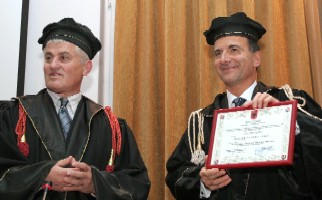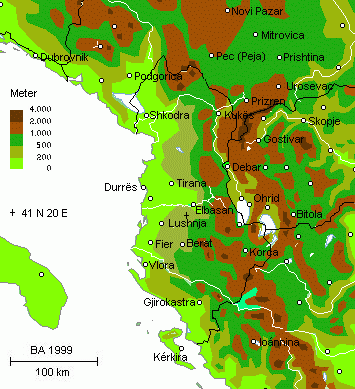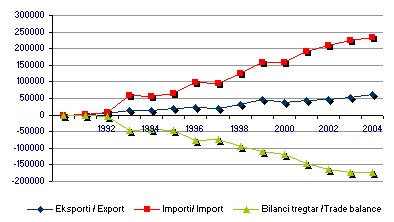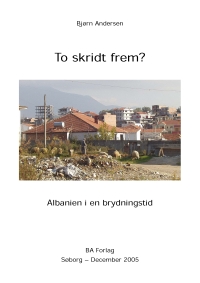Sidste Nyt fra Albanien, Kosóva og Makedonien
The Latest News from Albania, Kosóva and Macedonia
![]()
# 324 - 8' årgang - 24.11.2006
Version 1.2 [07.12.2006] •
PDF for printing •
Info om »Sidste Nyt« •
Tidligere numre
![]()
Udgiver:
Bjørn Andersen
Publisher:
Bjoern Andersen

Vicepræsident i Kommissionen Franco Frattini (th) er blevet promoveret som Æresdoktor ved Tirana's Universitet. Kommentar: Frattini er uden tvivl en dygtig mand, der har gjort præcis dét udmærkede der siges om ham; for det andet får promoveringen sikkert ingen som helst reel betydning for behandlingen af Albanien i EU-sammenhæng. Med andre ord er der tale om en rimeligt uskyldig og ligegyldig sag. Men burde netop Dr Frattini ikke have sagt nej tak, når han nu er involveret i Albaniens optagelsessag (for det er alle Kommissærerne), når der er akkurat dé temaer oppe som der er (fx at der skal sættes benhårdt ind mod enhver form for korruption) - og når det bør undgås at så tvivl om habiliteten? Man kunne desuden uden problemer have ventet til hans embedsperiode er slut, vil jeg mene - og dermed have fulgt dén model præsident Moisiu generelt har brugt, når han har tildelt Ambassadører og andre der har direkte indflydelse på Albaniens situation et hæderstegn, hvilket nemlig (så vidt jeg har observeret) først er sket ved deres fratræden i Tirana. Nu vil jeg imidlertid spørge EU's Repræsentation i Danmark om en principiel kommentar; når dén foreligger vil den blive trykt fuldstændig som den er. [Se under: EU].








